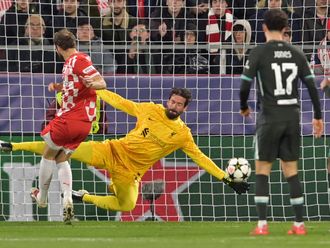Two news items made for heartwarming reading last week. One was that Ajit Wadekar had been picked to receive the Col C.K. Nayudu award for lifetime achievement and contribution to Indian cricket. Wadekar, in his own tongue-in-cheek style, reacted by saying that it had come a bit early, but nevertheless thanked the BCCI for bestowing it on him. Don't forget that Wadekar was part of the Indian Cricket League (ICL) and all those connected with it were out of the game's orbit for several years and forfeited even the monthly pensions that the BCCI was giving to the retired Indian internationals.
Once the ICL ceased to exist, many of the players still playing cricket sought, and were given, an amnesty by the BCCI and came back to first-class cricket. But many of those retired cricketers like Wadekar, who were in the ICL as administrators or coaches or match referees, were not immediately absorbed back. That the BCCI has decided to honour Wadekar with the award shows that the BCCI is ready to move on and recognise the contribution of these players to Indian cricket.
Wadekar was the first skipper to win back-to-back series overseas. His team first beat the West Indies in 1971 and then a few months later also defeated England.
Special victory
While India had beaten England in a Test series in India, they had never won even a Test match against the West Indies since 1948 and so the win against the West Indies, led by the one and only Sir Garfield Sobers, was special indeed.
Wadekar had been appointed captain instead of Mansour Ali Khan Pataudi in controversial circumstances with the casting vote of the then chairman of the selection committee Vijay Merchant.
Ajit did not have the charisma that ‘Tiger' Pataudi had and so not a lot of followers warmed up to the change in captaincy. However, Wadekar in his unfussy style got results and, in three years, India won three consecutive series under him.
In the bitterly cold first half of the 1974 tour to England, India lost all the three Test matches and when Wadekar returned to India, he found out that he was not considered good enough to be in the West Zone team, never mind captaining it. That shocking news prompted him to retire from the game and thus Pataudi became the captain again albeit for just one series.
Wadekar then went into administration and was vice-president of the Mumbai Cricket Association for a long time. He was also the manager of the Indian team and selector, and so his has truly been an all-round contribution to Indian cricket.
Pension
The other news that warms the cockles of the hearts is the posting of cheques for the life partners of Ramnath Kenny and Ramnath Parkar. It is not well known that the BCCI pension scheme is available to not just the retired player, but also to his life partner when he dies. It is not available to the other family members if the life partner also passes away.
The gesture to give them the amount that had not been sent to them earlier is a magnificent one indeed, and while the BCCI's generosity needs to be applauded, kudos also to Bapu Nadkarni, who found out that the two ladies were not getting the pension due to them and took the necessary steps to ensure that they got it.
His efforts speak of the bonds of camaraderie among the cricketers of that era. They played in each other's benefit matches without charging a penny and often went to unheard-of places to help raise funds for national causes.
Competitive
Today, if there is a Ranji Trophy being played in a town which does not provide five-star accommodation, the players find some reason not to play it. They, of course, play Ranji Trophy only when they are dropped from the Indian team or if they are out of form.
True, there is a lot of international cricket being played, but the one sure way that the game gets better is when the best players play in the domestic circuit even if it is for a few games. It not only makes the tournament more competitive but gives the selectors a more realistic idea about the skills of the fringe players.
— Professional Management Group












